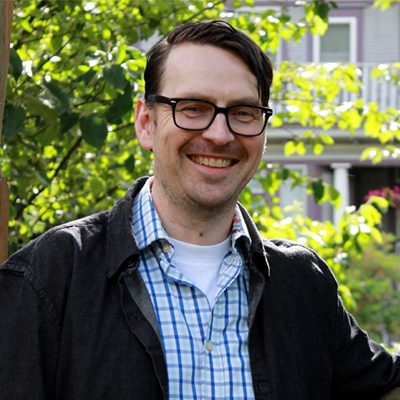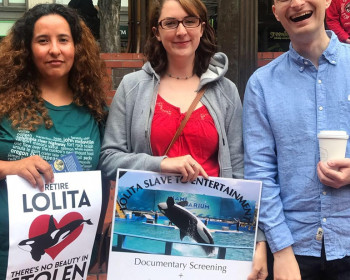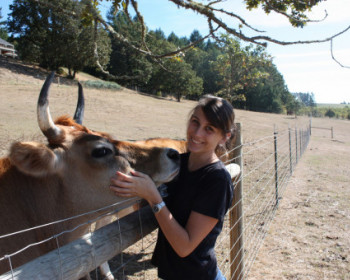Peter Brandt, LC Law Alum, Speaks to SALDF
Open gallery

On Thursday, October 5th, 2017, Peter Brandt spoke about bird flu and factory farming to our SALDF chapter. Peter is a Lewis & Clark Law alum, and the senior attorney for Farm Animal Litigation with the Humane Society of the United States’ Animal Protection Litigation section. Peter has been involved in animal protection issues for over a decade, and currently oversees the entire farm animal litigation docket for HSUS. He has been involved in a wide variety of farm animal protection lawsuits and administrative actions, and has also assisted on some criminal matters. These include a variety of subjects, such as false advertising related to farm animals’ care, and federal citizen suit actions against massive factory farms.
LC SALDF Co-Director, Ashlyn Whitbeck, started off the event by announcing our upcoming events and introducing Peter. Peter started by quoting George Orwell that, “To see what is in front of one’s nose is a constant struggle.” To describe this further, he played a Simpsons video that depicted contributory negligence and joint and severable liability. He stated that two groups that are contributory negligence to the spread of bird flu are the humans (a.k.a. the poultry business) and wild birds. He said that wild birds are often a scapegoat for the bird flu problem; however, we are unable to fix migratory birds, as they have been migrating for a much longer time than have there been factory farms. He also stated that influenza needs an environment to thrive, which factory farms are the perfect environment: they are damp with piles of manure. He said that bird flu alone cannot spread at such a rapid pace as factory farms allows them to, and that “it’s like a spark, if it lands in the wrong place, it won’t be able to spark, but if it lands in a tinder box, then a fire will start.”
Peter argues that the government blames birds so we do not have to address our own complicity in this issue. However, he said that the solution is that the virus will not spread if we minimize the conditions that help it spread. Peter filed a comment to the USDA asking that they do not compensate farmers who lost birds from influenza, because the solution is to have fewer birds in buildings. The USDA surprisingly responded by saying that they know this is a prominent issue, and that they would work with owners of factory farms on these conditions. Peter says this was the USDA basically telling him that they would take care of it later. But Peter stated that this issue is very important, and even the World Health Organization stated that one of the top three treats to human health is the bird flu.
Further, Peter said that some argue that farming needs to go back to the way it used to be, such as smaller, family farms. He says that people want to take elements of the past and elements of the future and combine them into something that’s not quite as good as either. However, Peter argues that we can’t turn back the clock, and people only argue this because it’s a comforting way to deal with a problem that we don’t have a solution to. Also, some people argue that veganism is not enough to stop the factory farm problem. But Peter says that if you have access to vegan items, this is something that people can do to help, even if it will not completely solve factory farming.
Peter then described some stories from his work and why he loves his career. He said that working on these issues is a great way help both animals and humans, and he loves that his job focuses on overlap issues, such as food safety, the environment, and health threats.
To learn more about Peter Brandt and is incredible work, please visit http://aldf.org/about-us/saldf/law-school-graduates-where-are-they-now/where-are-they-now-peter-brandt/.
More Lewis & Clark Law School Animal Legal Defense Fund Stories
Lewis & Clark Law School Animal Legal Defense Fund is located in room 14 of Wood Hall.
MSC: 51
email lcaldf@lclark.edu
voice 503-768-6795

